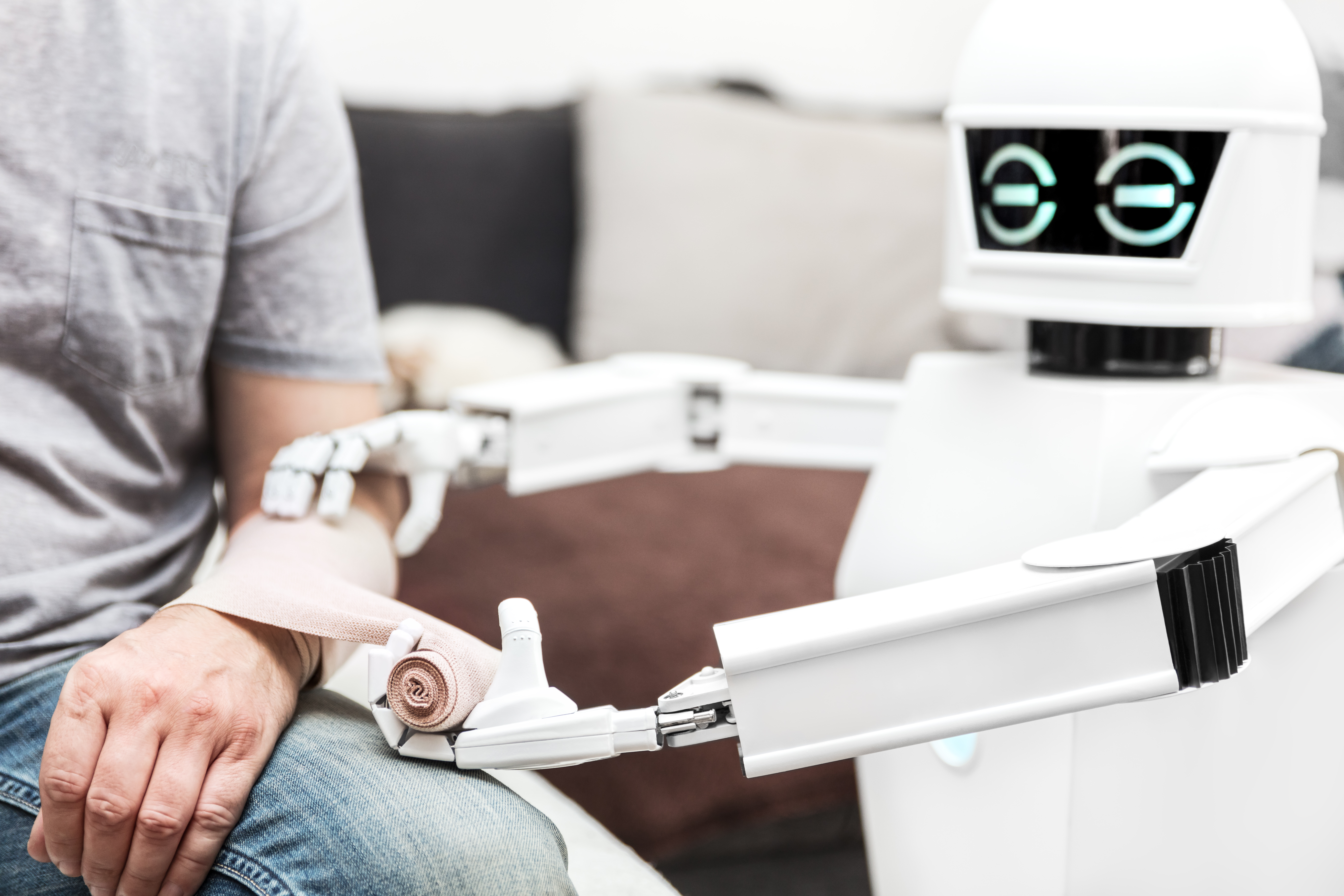
As if the effects of the COVID pandemic weren’t enough, the UK’s social care system is wobbling for other reasons, too. But AI is increasingly poised to help.
That’s according to Mitch Miller, managing director of ENA Care Group, a UK homecare provider for the elderly and disabled. In a recent commentary, Miller points to the growing percentage of the UK population aged over 65, exacerbated by falling birth rates and longer life expectancy, as a main driver of “more people than ever” being forced to fund their own care.
So how is AI ready to help?
For starters, says Miller, with care bots, which he defines as “often AI-driven systems involving sensors, algorithms and other devices that help to monitor people and make decisions” that are “already at work in many places.”
For example, he points to one borough council who “hired” a physical robot named Pepper who “can communicate, understand basic human emotions and make independent decisions – and has been helping people with dementia and children with complex disabilities.”
While robots like Pepper are going to replace human caregivers, in particular because they can’t provide the genuine empathy and companionship real care requires, Miller says “it’s been estimated that care bots and full automation could save the NHS up to £12.5 billion a year (almost 10% of its annual running costs), so the incentives for an overstretched sector are clear.”
Similarly, he says, there’s an ever-growing array of smart tech coming on-line with applications for the care industry. “Robotic pets and conversation-starting robots can enhance the happiness and wellbeing of elderly people. While wearable vital signs trackers and toilets that analyse stool samples can actively monitor people’s health. There’s also an expanding market in smart tech for carers to use themselves. A prime example of this is Embodied Labs, which uses VR to put carers in the shoes of people with macular degeneration, Alzheimer’s, Parkinson’s disease and similar conditions. They can then better understand the limitations and experiences of the people they’re caring for.”
Finally, Miller highlights the array of remote monitoring solutions that are enabling healthcare providers to provide care for the elderly or those with disabilities while also preserving individuals’ independence as much as possible.
For example, he says, “there are now sensors and tech that can let carers know if someone has been in the toilet longer than usual, hasn’t used the kettle or hasn’t taken medication. Innovations like this pick up changes in behaviour that might signal cognitive decline or an accident at home.”
Moreover, collaborations between tech companies and providers will help the NHS grapple with the ongoing problem of staffing and funding shortages.”
There is, of course, work still to be done to improve the accuracy of AI healthcare devices, but Miller observes that there’s evidence to suggest that the Covid-19 pandemic has caused more elderly people to embrace technology.
That support, when combined with the NHS’ administrative challenges, means the private sector will probably “embrace any developments in AI that can offer its personnel support.”
The good news, says Miller, is that “a large number of companies in the UK are innovating in this area, making it a fertile ground for breakthroughs and growth in AI-enabled healthcare.”
Photo by miriam-doerr/Getty Images


